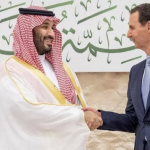This Could Also Be Right Up Your Alley:
Government is a complex entity that encompasses various theories, structures, and functions. This article explores the concept of government, from theoretical frameworks to practical applications, shedding light on its significance in society.
1. Theoretical Foundations of Government
Understanding government begins with exploring the theoretical foundations that underpin its existence. Political theories such as liberalism, conservatism, socialism, and anarchism offer diverse perspectives on the role, purpose, and legitimacy of government. These theories provide a framework for analyzing and critiquing different forms of governance and their impact on society.
2. Forms of Government
Governments can take various forms, ranging from democracies to monarchies, authoritarian regimes to constitutional republics. Each form of government has distinct characteristics, structures, and decision-making processes. Understanding these forms is crucial for comprehending the distribution of power, representation, and accountability within a given political system.
3. Separation of Powers
A fundamental concept in many governments is the separation of powers. This principle divides the functions of governance into three branches: the legislative, executive, and judicial. By separating powers, governments aim to prevent the concentration of authority, ensure checks and balances, and protect individual rights and liberties.
4. Electoral Systems and Political Participation
Elections serve as a means for citizens to participate in the political process and shape the composition of their government. Various electoral systems, such as proportional representation or first-past-the-post, influence the representation of different political parties and ideologies. Understanding these systems is essential for analyzing the dynamics of political participation and the formation of governments.
5. Public Policy and Governance
Government’s practical application lies in the formulation and implementation of public policies. Public policy decisions affect numerous areas, including healthcare, education, economic regulations, and environmental protection. Studying public policy and governance allows for a deeper understanding of how governments address societal issues and allocate resources.
6. International Relations and Global Governance
Government’s reach extends beyond national borders into the realm of international relations and global governance. Governments engage in diplomatic relations, international treaties, and multilateral organizations to address global challenges such as security, trade, and climate change. Understanding the dynamics of international relations provides insight into the complexities of modern governance.
7. Citizen Engagement and Democracy
Citizen engagement and participation are vital components of democratic governance. Governments rely on citizen input through various mechanisms, including public consultations, civil society organizations, and grassroots movements. Understanding the role of citizens in shaping government decisions fosters an appreciation for the importance of active citizenship in a democratic society.
Conclusion: Understanding government involves exploring its theoretical foundations, forms, separation of powers, electoral systems, public policy, international relations, and citizen engagement. By delving into these aspects, we can gain insights into how government functions, its impact on society, and the mechanisms through which individuals can actively participate in the political process. Expanding our understanding of government from theory to practice enables us to navigate the complexities of governance and contribute to shaping a more inclusive and responsive society.
Here's A Video We Thought You Might Also Like:
Author Profile
Latest entries
 World2023.05.19Georgian anger as Russian flights land again in Tbilisi
World2023.05.19Georgian anger as Russian flights land again in Tbilisi Breaking News2023.05.19Assad Urges Arab Leaders to Seize ‘Historic Opportunity’ in Remaking the Middle East
Breaking News2023.05.19Assad Urges Arab Leaders to Seize ‘Historic Opportunity’ in Remaking the Middle East Breaking News2023.05.19Volodymyr Zelensky Accuses Arab Leaders of Neglecting Russia’s Invasion Ahead of G7 Summit
Breaking News2023.05.19Volodymyr Zelensky Accuses Arab Leaders of Neglecting Russia’s Invasion Ahead of G7 Summit Breaking News2023.05.19President Biden Announces US Support for Joint Training Initiative to Strengthen Ukrainian Air Force
Breaking News2023.05.19President Biden Announces US Support for Joint Training Initiative to Strengthen Ukrainian Air Force






